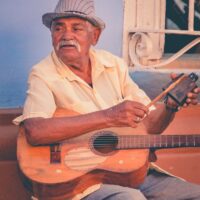The Latino community faces a multitude of challenges, these challenges include poor socioeconomic resources, a crisis with religious identity, the risk for behavioral problems, such as drug use and early pregnancy, and low educational attainment. All of these combined with the crushing weight of the parents, and self-immigrant status, as well as the “taboo” that mental health represents among traditional immigrant households, can bring a great deal of mental health distress to the Latino youth, specially first-generation youth. The CDC’s 2007 national study shows that Latino youth were more likely to feel sad or hopeless (36.3%), to seriously consider suicide (15.9%), and to attempt suicide (10.2%) than white (26.2%, 14.0%, and 5.6%, respectively) and African American (29.2%, 13.2%, and 7.7%) youth.
Looking at all these numbers can be overwhelming and worrisome but understanding the importance of mental health and detecting early signs of anxiety and depression in our youth is of utmost importance. Major anxiety and depression disorders are two of the most prevalent mental health conditions affecting Latino youth. For this reason, we should know how to take steps for recovery. Some tips to getting started are:
- Learn about the impact of anxiety and depression disorders, such as their impact on behaviors. This will help you understand the illness better and identify it easier.
- Understand that many young students may keep concerns, negative feelings, and fears private. Learn to support them in the way that may fit them most.
- Spot and determine which supports are in place, such as therapy and school counseling, and what else might be needed to accomplish a safe place for your child.
- Consider reaching out to educators, cultural liaisons, mental health professionals, administrators, or even other parents to identify the challenges students are facing and pull together an appropriate social-emotional health plan that better fits your family.








